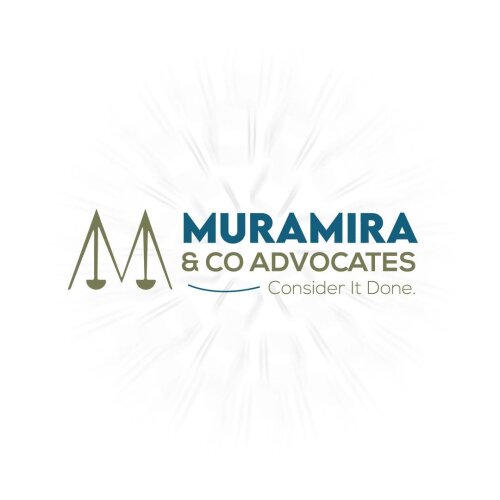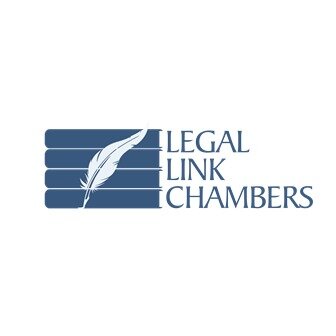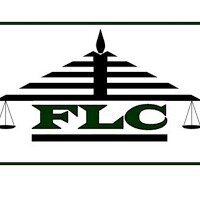Best Labor Law Lawyers in Kigali
Share your needs with us, get contacted by law firms.
Free. Takes 2 min.
List of the best lawyers in Kigali, Rwanda
About Labor Law in Kigali, Rwanda
Labor Law in Kigali, Rwanda, is governed largely by the broader national labor regulations which aim to foster fair labor practices, enhance working conditions, and solidify employer-employee relationships. These laws are designed to balance the needs of employers and employees, stimulate economic growth, and ensure human rights in the workplace. The Ministry of Public Service and Labor (MIFOTRA) is responsible for labor administration and enforcement in Kigali and across the country. Major legislative instruments include the Law Governing Labor in Rwanda, which outlines general working conditions, employment contracts, dispute resolution, and rights and obligations of both parties in an employment relationship.
Why You May Need a Lawyer
There are various situations where you might need legal assistance for labor law issues. Common scenarios include disputes over employment contracts, wrongful termination, wage and hour disputes, workplace discrimination or harassment, and the negotiation of terms of employment or severance agreements. Additionally, employers might require guidance on compliance with labor regulations and handling disputes with employees. A lawyer can provide expert advice, represent you in disputes, and help ensure your rights are protected under Rwandan law.
Local Laws Overview
Key aspects of local labor laws in Kigali include:
- Employment Contracts: These must be in writing when the duration exceeds three months, detailing specific terms of employment including job description, duration, remuneration, and working hours.
- Working Hours and Leave: Typical work hours do not exceed 45 hours per week, with employees entitled to annual, maternity, and special leave, among other types.
- Minimum Wage and Remuneration: The national minimum wage is set by the government, subject to periodic reviews to ensure fair compensation aligned with economic changes.
- Termination of Employment: Specific procedures must be adhered to, whether for dismissal due to fault or other reasons. Employees are entitled to severance pay in certain circumstances.
- Safety and Health: Employers are obligated to ensure a safe work environment according to established occupational health and safety standards.
- Dispute Resolution: There are mechanisms for resolving labor disputes including mediation, arbitration, and legal proceedings if necessary.
Frequently Asked Questions
What is the process of filing a labor dispute?
Disputants may first attempt to resolve issues through internal mechanisms or mediation. If unresolved, they can proceed to the National Labor Court for adjudication.
Are non-compete clauses enforceable in Rwanda?
While non-compete clauses can be part of employment contracts, they must be reasonable in geographic scope, duration, and functional scope to be enforceable.
What rights do employees have regarding termination?
Employees have the right to be informed of the reasons for termination and receive severance pay if appropriate. Terminations require adherence to due process.
How is workplace harassment addressed under Rwandan law?
Workplace harassment, including sexual harassment, is considered a violation of labor rights. Both preventive measures and remedies for victims are emphasized by the law.
How can an employee ensure their work environment is safe?
Employees can report unsafe conditions to the relevant authorities. Employers must adhere to strict occupational health and safety standards.
What are the options for unpaid salary or wages?
Employees can file a complaint with labor authorities or pursue legal action to recover unpaid wages. Employers are obligated to pay employees within stipulated timeframes.
What is the legal probation period for new employees?
The probation period must not exceed six months, during which the employment contract may be terminated by either party with a shorter notice period.
Can an employer change employment terms unilaterally?
Significant changes to employment terms usually require mutual consent unless such changes are within the legal framework and employment contract.
Is there legal protection for whistleblowers?
Yes, laws provide protection to employees who report misconduct or illegal activities, safeguarding them from retaliation by employers.
What are employees' entitlements during maternity leave?
Employees are entitled to 12 consecutive weeks of maternity leave, with six weeks before and six weeks after childbirth, along with maternity benefits.
Additional Resources
For assistance regarding labor law in Kigali, consider reaching out to the following resources:
- The Ministry of Public Service and Labor (MIFOTRA): Responsible for overseeing labor regulations and resolving workplace disputes.
- Rwanda Bar Association: Provides a directory of qualified labor law attorneys and guidance on finding legal representation.
- National Labor Court: A specialized court dealing with labor-related issues and disputes.
- The Rwanda Workers' Trade Union Confederation: Advocates for workers' rights and provides support in labor disputes.
Next Steps
If you believe you need legal assistance, begin by documenting all related communications and employment records. Seek initial advice from a qualified labor lawyer, who can guide you on how to proceed and represent you in relevant legal processes. If you lack the financial means to hire an attorney, consider reaching out to legal aid organizations in Kigali that may offer assistance or pro bono services. Always ensure that you are working with legally accredited professionals.
Lawzana helps you find the best lawyers and law firms in Kigali through a curated and pre-screened list of qualified legal professionals. Our platform offers rankings and detailed profiles of attorneys and law firms, allowing you to compare based on practice areas, including Labor Law, experience, and client feedback.
Each profile includes a description of the firm's areas of practice, client reviews, team members and partners, year of establishment, spoken languages, office locations, contact information, social media presence, and any published articles or resources. Most firms on our platform speak English and are experienced in both local and international legal matters.
Get a quote from top-rated law firms in Kigali, Rwanda — quickly, securely, and without unnecessary hassle.
Disclaimer:
The information provided on this page is for general informational purposes only and does not constitute legal advice. While we strive to ensure the accuracy and relevance of the content, legal information may change over time, and interpretations of the law can vary. You should always consult with a qualified legal professional for advice specific to your situation.
We disclaim all liability for actions taken or not taken based on the content of this page. If you believe any information is incorrect or outdated, please contact us, and we will review and update it where appropriate.















